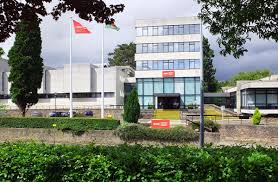- Massaging the truth - 27th February 2026
- ‘It’s the new economy, stupid…’ - 27th February 2026
- Eyes right… - 26th February 2026
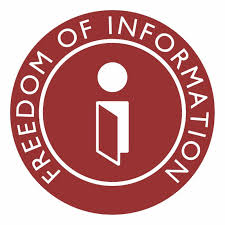
Different BBC Radio Wales (RW) listeners have been refused details in a Freedom of Information Act (FOIA) request about audience figures, revealing the severe limitations of the legislation, The Eye can disclose.
One listener had asked The BBC’s regulator, the Office of Communications (OFCOM): “Can you please reveal how many hours a week of regular Radio Wales programmes broadcast between 6.00 am and 6.00 pm are produced and transmitted from North Wales?”.
But the listener was told: “We hold the information you requested, however we are unable to release it as it falls under an exemption…”.

A similar question was sent direct to BBC Wales (BBCW) but this listener was informed: “The information you requested is excluded…”. Another query prompted the response: “The BBC does not offer an internal review when the information is not covered by the act.”. In the past, requests for information under the FOIA have also been met with a flat refusal to provide answers. One angry listener was told in 2010: “We are not… obliged to supply information…”.

Giving information is obviously a problem for BBCW. In the past our Editor Phil Parry spent several months trying to secure an interview with the Director Rhodri Talfan Davies, but was eventually told that none would be granted.
The shock news of the refusals come as we have exclusively reported that one of RW’s leading former presenters, Mike Flynn, has demanded the resignation of Mr Davies, as well as the Editor of RW Colin Paterson because the listening figures are the worst on record and far below what Mr Paterson said he could achieve.
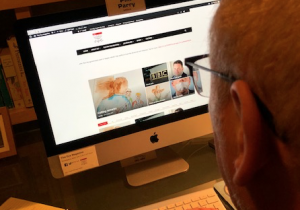
Other listeners apart from him, are also obviously unhappy with Mr Davies’ English-language radio station. One of the protesters who made his views known on the Digital Spy Forum wrote about RW: “The morning news programme has reduced its hours. The content of the morning news is poor, not enough news stories, Radio Four Today it is not”.
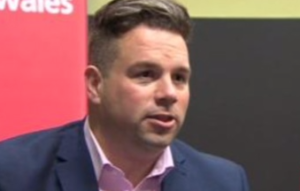
The weekly audience ‘reach’ for RW is now only 317,000, yet for the station’s 40th birthday commemorations last year, Mr Paterson, had told media executives it would be approaching 500,000. But at the birthday ‘celebrations’, he did not directly address the falling listening figures and huge undershoot, saying instead: “Radio stations tend to be looking more towards narrow-casting…”.
Earlier last year when other low listening figures were about to be released for RW, Mr Paterson commented in an email we have seen: “I couldn’t be more pleased…”, and in response to a decision to axe RW coverage of the football club Wrexham FC, Mr Paterson told a fan to listen online.
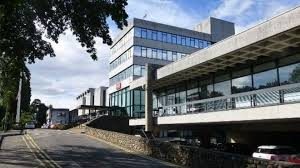
On average a mere 2,750 people out of the 3,000,000 population of Wales are listening per hour, giving the station a tiny 4.4 per cent share of the Welsh market, yet it still claims it is the “national radio station for Wales”. The cost works out at about £6,500 per listener per annum.
Publicly though, RW still sees itself as a “success story” and the creation of new posts appears to continue unabated. Last year officials said they wanted to appoint an “experienced radio professional” as Deputy Editor at RW during an “exciting time” for the station despite the low audience figures. The successful candidate would “engage and inspire”.

The anger of RW listeners is also evident in other posts on the Digital Spy Forum website, where there are huge complaints about a perceived bias towards South Wales, and that the record low audience figures for the station are very different to those of its sister broadcaster BBC Radio Cymru (BBCRC). One comment reads: “It’s interesting that while the audience for Radio Wales is falling off a cliff, the Radio Cymru audience is holding its own”.


There is enormous controversy as well about the lack of coverage in the north of Wales, despite RW calling itself a ‘national’ radio station. Radios 1, 2 & 4 together notch up a massive 85.6 per cent of listening in North Wales and Radio 2 is getting ten times as many tuning in as RW.
Audiences have also been boosted among Wales’ commercial radio stations. There were increases for Capital South Wales, Heart South Wales and Swansea Bay Radio compared to the previous quarter.

The figures for RW also throw the spotlight on the huge new BBCW headquarters at Central Square in the centre of Cardiff, when radio in the north of Wales comes from very different premises.
In Wrexham the RW output is produced from two rented rooms in Glyndwr University. Workers there sit alongside the tiny Calon FM community station, which now provides live Wrexham FC coverage following the contentious decision to axe live game commentary.
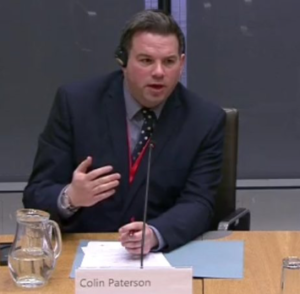
Indeed Mr Paterson admitted to Assembly Members on the media committee that he uses the unpaid volunteers at this minute radio station, to help with setting up bands for the Janice Long programme. He told them: “Some of their (Calon FM) volunteers are actually involved in some of our outputs. Janice Long’s programme on Radio Wales comes from Wrexham in the evening. Some of the volunteers there help us with live bands and sessions, and elements like that”.
The latest controversies to engulf BBCW are set against a worrying background – the closure of TV Current Affairs programmes. The popular TV debate series The Hour was closed down by BBCW after just a year and at a cost to the licence-fee payer of about a million pounds, following the closure of the 53 year-old award-winning Welsh TV Current Affairs programme Week In, Week Out (WIWO), and the alarming news became the subject of our satirical writer Edwin Phillips.
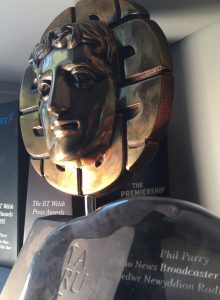
But viewers had described The Hour as “necessary” and even BBCW had admitted to The Eye it “capture(d) the mood of the nation”. The move to axe WIWO after a much longer run, came when it had won a clutch of awards. including prizes at the Royal Television Society, BAFTA Cymru, the Celtic Media ceremony and BT Wales. Another award was presented after BBCW had closed WIWO. The programme had also been used as a springboard for Panorama episodes, and one of the journalists’ investigations still features near the top of an internal document recording the highest viewing figures. Another WIWO helped secure new evidence which led to the release from prison of three young South Wales men who had been wrongly convicted of murder, known as the Cardiff Newsagent Three.
Even so it was replaced by the occasional programme ‘BBC Wales Investigates’. The decision though, has not been universally welcomed.

Mr Parry, who presented WIWO for more than 10 years until 1999, told WalesOnline: “It is absurd to suggest that putting a label on a story like ‘BBC Wales Investigates’ in any way compensates for getting rid of a regular weekly Current Affairs strand which had been going for many years, like Week In Week Out. It never works – they tried to say the same when they got rid of Public Eye on BBC 2. ‘Public Eye Investigations’ was never heard of again. When you have a regular series, with a team of people who know each other, an ‘esprit de corps’ develops. You know who are the best ‘quick turnaround merchants’ and who are better to be left alone so they can work on longer investigations.”
The ending of WIWO and The Hour followed the demise of a long list of TV Current Affairs programmes – including World in Action, This Week, TV Eye and First Tuesday on ITV, and Rough Justice as well as Public Eye on network BBC. But the actions by the publicly-funded corporation to scrap theirs have proved troubling, and the cost involved was questioned. The TaxPayers’ Alliance told The Eye: “The BBC cannot be this profligate and not expect to face serious and legitimate criticism from licence fee payers. The BBC needs to demonstrate better value for money, or calls for scrapping the licence fee will only grow in volume and validity.”
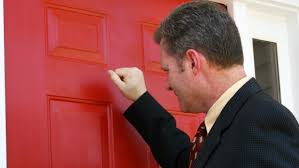
As one highly-critical website puts it: “Where is the investigative journalism? Where are the probing documentaries? Where is the reporting of the terrible scandals and corruption that rack our much-abused nation (Wales)? Responsibility partly rests with (BBC Radio Wales) editor Colin Paterson, but chiefly with BBC Wales director Rhodri Talfan Davies”.
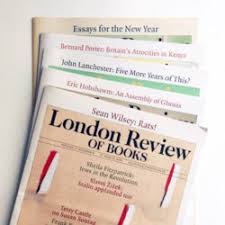
Earlier last month The Eye showed how BBCW staff had endorsed a hard-hitting article in the London Review of Books called “Can’t Afford to Tell the Truth” which exposed the appalling culture of wasted money, duplication of resources, overmanning and internal competition. One told us: “This piece is exactly right – we all compete with each other and the waste of money is colossal”. Another said to The Eye: “Everybody knows it goes on, but nobody says anything”. A former employee at BBCW who has recently left, told us: “Sadly I don’t find any of it unusual”.
Sadly controversies about the audience figures for BBCW are also not unusual…
Check your knowledge of major events as revealed on The Eye, with our brilliant interactive quiz: [viralQuiz id=1]










